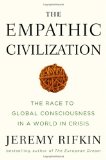Empathy without a reason?
There is a moment in this scene that is worth as much as the whole movie. Stu’s eyes as he watches his father give candyfloss to two children. It is clear that he is asking himself: how can you turn the other cheek?
Stu: I hope you know them’re the kids that just beat me up!
Stephen: I know who they are, son.
Stu: Why’d you give them Mom and Lidia’s cotton candy?
Stephen: ‘Cause it looked like they hadn’t been given nothing in a long time.
Steping into the shoes of others is a quality that I always appreciate in people. Unfortunately, many people think that being able to do so is a question of technique. So they attend courses that teach “mirroring” or “active listening” and during the first week they seem like small Buddha that have descended on earth. From the second week onwards, they all fall back on to the belief: “an eye for an eye, a tooth for a tooth.”
Too bad that “empathy” is not the product of a technique, nor flattery, but it is the deepest respect for the experience of others, especially when it is completely different from ours. It is about giving something to people who until two minutes ago were making fun of you, turning around quickly as Stephen did, and leaving without expecting anything in return.
Among my fellow trainers, some argue that the search of empathy should be aimed at achieving a communicative goal. Then, there are others who argue that true leaders are recognised by the way that they treat people lower in the hierarchy. In that case, free from flattery and objectives, a true leader shines due to his ability to empathise.
So to feel “empathy“, we do not necessarily have to have a goal, if not a greater, collective and systemic one. Such as to build an empathic society, where social life is punctuated by the small gestures of ordinary people who identify themselves in each other, to understand each other, to support each other and eventually to rise as a community.
Perhaps this is what is really missing.
Watching the scene again, I asked myself:
Who should I give cotton candy to in my family?
And in my work place?
To live in empathy, it is necessary to embrace a conscious mental attitude. It is about “suspending yourself” and giving voice others, to then go back to yourself with a different vision. We know that effort is needed for this to happen, so much so that the American Indians used to say:
Never criticize a man until you have walked a mile in his moccasins.
So it is useless trying to find a rational answer to the question “why turn the other cheek?” Because the answer is only emotive and it comes from putting yourself into someone’s shoes, and understanding the suffering and the love that are in each one of us.
As Nietzsche said: Everything that is done out of love goes beyond good and evil.
“… and in case I don’t see ya…
good afternoon, good evening and good night!”…
(The Truman Show)
Virginio


